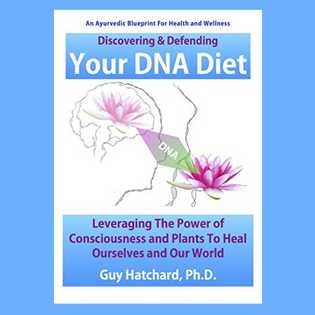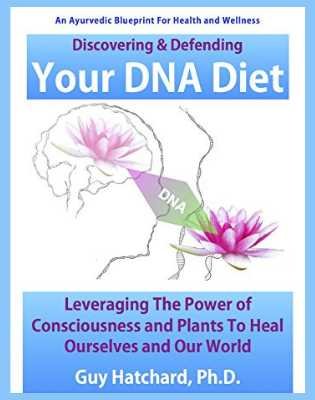As you know, public health is my major concern. Little is possible without robust health. So the most important question is, what alternatives are available to solve the public health crisis?
This article is also available as a PDF document to print/download and share. You can also listen to an audio version here.
This release augments my interview on Reality Check Radio’s Breakfast with Paul Brennan earlier this week and my presentation to the NZDSOS conference on Saturday, 16th September. As election campaigning heats up, it is worth taking a cool look at what is being claimed by wannabe leaders for their proposed policies, and what else could we be doing.
Our political leaders and the nation’s medical administrators have fallen short of explaining to the public what has gone down, not so much during the pandemic but post pandemic—what is happening now. The long wait lists for surgery and the appalling response times for emergency treatment are not so much a reflection of a health service in disarray, but primarily the result of a massive increase in illness among the general population.
Heart disease, cancers, strokes, reproductive health issues, neurological illness, mental health episodes, immunological deficiencies, disability, and excess mortality have been increasing at rates never seen before. We have repeatedly reported on these. For example, the rate of hospitalisation for heart disease has increased by 83% and strokes by 40%. None of these frightening developments have been mentioned during the election campaign.
Let us leave aside for the moment a discussion of the root causes of this tsunami of illness, which will include Covid infection, long Covid, Covid vaccination, Covid lockdowns, and biotechnology experimentation in various proportions.
National, Labour, ACT, and the Greens are promising to increase funding, reduce wait times, increase access to screening and treatment across the spectrum of disease, build more hospitals and fund more drugs, control our borders and incentivise preventative measures including vaccines, train more doctors and import more personnel from overseas. A lot of promises, but can they deliver and will they work?
The sad truth is that the scale and scope of these conventional approaches to rescue the health service will fall far short of the required remediation. Winning the election is going to be a poisoned chalice for whomever is elected because of the huge scale of the problems and the limitations and deficiencies of the approaches currently being used by the health service. Approaches funded and promoted by parliament are in some cases complicating and even causing our health problems. These are the same approaches that all political parties are planning to increase rather than modify or augment.
According to scientific studies, what really can improve health outcomes?
Food
Improving diet is a powerful approach. Many studies show that the benefits of fresh fruit and vegetables for health are not only significant but they are very large. Research published in 2015, with 150,000 participants over 32 years, found that vegetarians live longer. Even a tiny 3 per cent increase in protein from plants led to a huge 12 per cent drop in risk of death from cardiovascular-related disease.
A study published by the BMJ found:
“Participants with Covid-19 who reported following ‘plant-based diets’ and ‘plant-based diets with pescatarian elements’ had 73% and 59% lower odds of moderate-to-severe COVID-19 severity, respectively, compared with participants who did not follow these diets.”
A 2017 review found organic food consumption reduces the risk of allergic disease and obesity. In organic agriculture, the use of pesticides is restricted.
“Epidemiological studies have reported adverse effects of certain pesticides on children’s cognitive development at current levels of exposure.”
Herbs have a long history of safe and effective use in medicine. A randomised placebo-controlled trial published in April 2021 found improved outcomes for Covid-19 positive patients treated with a range of Ayurvedic Indian herbal preparations.
Behaviour
A study conducted in the UK found that shift workers, who typically suffer from disrupted bio clocks and fatigue, were three times more likely to be hospitalised with Covid-19.
A study of 48,000 adults in California published in the BMJ found that regular exercise reduced the risk of severity, hospitalisation, and death from Covid-19.
Other studies show that taking time for enjoyment, variety, and relaxation impacts positively on health and happiness.
Consciousness
Multiple studies show traditional methods of developing consciousness including Yoga, Qigong and Meditation have the potential to improve immunity. A 2012 study of heart patients published in the prestigious journal Circulation entitled “Stress Reduction in the Secondary Prevention of Cardiovascular Disease” found that during a five year follow-up those who were randomly assigned to a deep meditation programme decreased 48% on a composite measure of heart attacks, strokes and death compared to health education controls.
A five year study of health insurance statistics of 2,000 people practicing a meditation technique found that both inpatient and outpatient medical utilisation was more than 50% lower than the norm or matched controls, and was lower in every category of disease. Reductions included 87% less heart disease, 55% less cancer, 87% less neurological disease, and 65% lower metabolic disease (including diabetes).
Will the government summon the courage to modify their approach?
If funded by our health service, the very large effect sizes of approaches such as those above would greatly alleviate our current health crisis. However, there has been a huge historical resistance to introducing effective natural approaches to healthcare. Over the years in the past I have made a number of approaches to our healthcare authorities which have been acknowledged as sound but rejected for funding.
In one case for example in the nineties, the chairman of a committee at our Ministry of Health, charged with introducing new health initiatives, praised my presentation but said such measures would never be supported because “the resulting massive improvements in public health would reduce doctor incomes”. How he managed to tell me this and still sleep at night escapes my imagination.
I think you can see that our medical authorities and elected politicians are caught in a medical economic system that is not just reluctant to change but determined to defend the limitations of its pharmaceutical basis. In fact, health is determined primarily not by what drugs we take or surgeries we receive, but by our diet, behaviour, hygiene and mental equanimity.
There is little understanding of this in parliament. National and ACT are planning to deregulate biotechnology experimentation—the underlying cause of the pandemic. Labour and the Greens have already passed legislation which will limit the availability of safe herbal treatments. This indicates a worrying trend towards the control of our health choices, a disregard for safety and risk management, and a willingness to enforce medical experimentation on the public.
The massive and unprecedented health crisis we are currently experiencing is due to the implementation of medical interventions based on biotechnology experimentation. This approach has inherent dangers which need to be addressed. Unless and until our politicians move beyond the pressures exerted by pharmaceutical lobby groups, we will not make progress with public health targets and national well being. This may be new territory for politicians, but success will elude them and the good health of the nation will remain out of reach until that step is taken.






